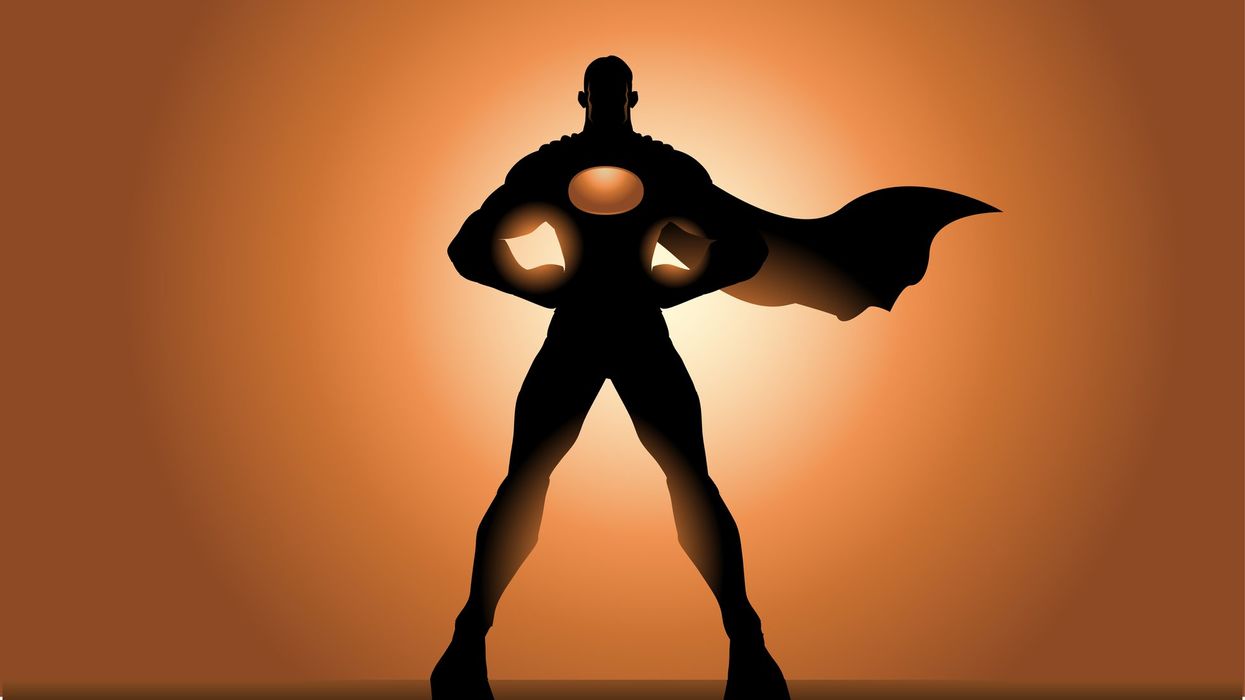
yogysic/Getty

The antidote to Altman isn’t a law or an Iron Man-style superhero but a return to confront the soul sickness lurking in all our hearts.
Spend enough time around Silicon Valley these days, and you’ll hear a surprising thing — the V-word, villain, used to describe what would seem to be one of their own. Not every tech lord, venture capitalist, and founder sees OpenAI’s Sam Altman, the creator of ChatGPT, as a for-real bad guy, but more do than you might expect. The feeling is palpable, now that Altman speaks openly of raising $8 trillion, that today’s villain is well on his way to becoming tomorrow’s supervillain.
It’s an attitude arrestingly close to “doomer” status — the pessimistic attitude toward the onrushing future most techies decry in the name of a-rising-tide-lifts-all-boats optimism about innovation-driven progress. But even without diving into the progress debate, Altman’s uncanny advancement as the rare guy felt in the Valley to be suspect ethically raises significant questions about what can stop humanity’s human villains from accelerating us into a specifically spiritual catastrophe.
The face of our digitally manifested “collective consciousness” isn’t that of an autistic new Enlightenment. It’s schizoid pandemonium.
A fascinating piece of evidence is the euphoria surrounding OpenAI’s latest prompt-to-video product. Sora is a feature that will turn text into AI-generated videos. A series of sample clips triggered a wave of soyfacing and blown minds to rival the comparisons drawn by Apple Vision Pro testers to some kind of religious experience. “Hollywood-quality” ... “Hollywood beware” ... “RIP Hollywood” ... you can probably spend an hour on X just working through techland assessments of Sora’s impending impact. “This is the worst this technology will ever be.”
There are skeptics, of course. Lauren Southern, who couldn’t get ChatGPT to “generate text with the word ‘libs’ in it,” mocked Sora’s prospects for sinking “woke Hollywood,” predicting “an age of censorship and gov curation the likes of which we’ve never seen before.”
The deeper issue is what exactly we mean by “Hollywood” — a matter akin to what exactly we mean by “the media.” These abstractions refer to corporations, of course, and in that sense, yes — Sora and its inevitable clones might make obsolete corporate mass entertainment in exchange for products directly from the regime itself.
But here we are again talking about abstractions. Hollywood, the media, and the regime are not simply organizations and baskets or networks of organizations, but people, specific flesh-and-blood human beings, with various spiritual lives in varying degrees of distress.
Innovations like Sora don’t just raise questions about which group of people will seize or inherit control of these video and narrative creation tools. They raise questions about whether the automation of content will cause more of us to believe that our spiritual health demands a turn away from worshipful or obsessive attitudes toward narrative altogether.
The dominance of Hollywood, Madison Avenue, and government propaganda arose amidst the televisual forms of communications technology that digital tech has leaped over. The people filling the image-mongering ranks and narrative-shaping executive offices of Los Angeles, New York, and Washington, D.C., came of age and rose to mastery in a world where whoever controlled the means of dream production held sway and whoever dreamed the biggest and best dreams earned an ethical right to rule.
But that state of affairs wasn’t simply determined by the formative influence of televisual tech. Fundamentally, it arose from the temptations that always bedevil us and threaten our spiritual health — not just the sparkling promise of evil and its earthly rewards but our dreams, senses, and passions.
Of course, it’s not our ability to see, smell, and taste, our imaginative and recollective faculties, or our capacity to desire that are evil. It’s that when spiritually undisciplined, all these attributes — which we so frequently idolize, trust, and artificially push to extremes — lead us badly astray into delusion, distraction, addiction, and perversion.
The rise of tools like Sora holds up an uncanny mirror to the idol factories already within in our hearts and minds, giving us a shocking vision of an infinite firehose mindlessly filling up every cranny of our awareness with everything we could ever lust after, everything we could ever describe, all we could fear, all we could imagine, all we could forget — all without us having to lift a finger.
After all, today’s text-based prompting will “eventually” give way, as Mark Zuckerberg recently and offhandedly remarked about Meta’s Apple Vision Pro competitor, to “a neural interface.” The face of our digitally manifested “collective consciousness” isn’t that of an autistic new Enlightenment. It’s schizoid pandemonium.
It all strongly implies that the antidote to Altman isn’t a law or an Iron Man-style superhero but a return to confront the soul sickness lurking in all our hearts and a sobered new willingness to accept responsibility for taking on the discipline to bend our will toward fighting for our spiritual health.
That’s not a very amaaaaazing elevator pitch for the next generation of content creation. Yet if we want to hang on to a future rich with human art worth making and sharing, our path won’t run broadly through a mania of mind-blowing machines but through the quiet, narrow passage of the divine.
James Poulos
BlazeTV Host